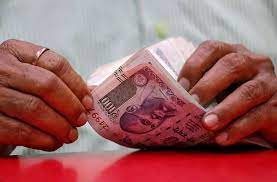Public sector banks and major private banks collected over ₹35,000 cr in charges: According to a Finance Ministry study, both state-owned banks and major commercial banks have collected more than 21,000 crore in fees, largely from account holders who fail to maintain the minimum balance.
Daily Current Affairs Quiz: August 2023
Charges amounting to over ₹35,000 crore have been amassed since 2018 due to reasons such as non-compliance with minimum balance requirements, additional ATM transactions, and SMS services.
Breakdown of Charges
- The report highlighted that a significant portion of the collected charges, totaling over ₹21,000 crore, resulted from customers failing to maintain the minimum balance required in their accounts.
- Furthermore, a substantial sum of ₹8,000 crore was accrued from transactions conducted through ATMs beyond the stipulated number of free transactions.
- Another noteworthy contributor to the collected charges is SMS services, generating over ₹6,000 crore. Banks charge consumers for sending SMS warnings, and the Reserve Bank of India (RBI) has recommended banks to ensure that such costs are reasonable and based on actual usage.
Monthly Average Balance and ATM Transaction Charges
This monthly average balance (MAB) or average monthly balance (AMB) varies by geography, ranging from 3,000 to 10,000 in metro areas, 2,000 to 5,000 in urban areas, and 500 to 1,000 in rural areas. Failure to meet this balance criterion leads to penalties, which can range from ₹400 to ₹500, depending on the bank.
The charges for each subsequent ATM transaction are capped at ₹21 per transaction, as of January 1, 2022. This policy aims to encourage prudent ATM usage while minimizing undue financial strain on customers. Customers are usually entitled to five free transactions per month at their own bank’s ATMs, as well as a set number of free transactions at other banks’ ATMs.
RBI’s Role and Regulations
The RBI is critical in managing and regulating these banking fees. The RBI circular allows banks to levy penalties for failing to maintain a minimum amount in savings accounts, as long as the penalties are consistent with the bank’s board-approved rules.
The RBI emphasizes that these charges should be reasonable and in line with the average cost of providing services. Moreover, the central bank has urged financial institutions to ensure fairness and equity in the fees associated with sending SMS alerts to customers.
Key Points for Competitive Examinations
- Minister of State in the Finance Ministry: Bhagwat Karad
